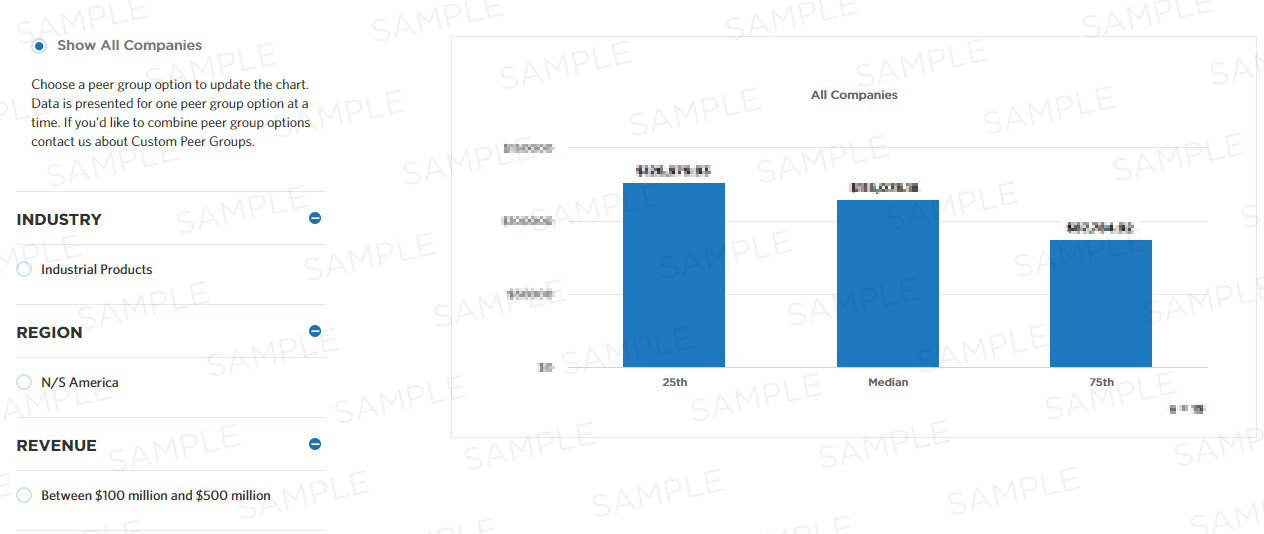Systems cost to perform the process "process expense reimbursements" per $100,000 of T&E expenditures
This measure calculates systems cost per $100,000 of travel and entertainment (T&E) expenditures to process reimbursements to employees for the expenses incurred during the course of business. Activities include approving and processing advancements and reimbursements for employee expenses on the organization's behalf, capturing and reporting relevant tax data, and managing personal accounts. T&E expenditures are the reimbursable expenses employees incur on behalf of the company (e.g., rental car, hotel, airfare, etc.). Systems costs include a variety of specific costs related to computer hardware/software, network maintenance, data storage, etc., and all fees paid to full-time, part-time, or temporary employees or independent contractors hired to perform these services. This measure is part of a set of Cost Effectiveness measures that help companies understand all cost expenditures related to the "process expense reimbursements" process.
Benchmark Data
| 25th | Median | 75th |
|---|---|---|
| - | - | - |

Compute this Measure
Units for this measure are dollars.
Systems cost to perform the process "process expense reimbursements" / (Total value of T&E expenditures * 0.00001)
Key Terms
Systems Cost
Systems costs include all expenses, paid or incurred, in conjunction with:
Computer hardware or computer software acquired by the organization or provided to the organization through service contracts.
Any related costs to process, service and maintain computer hardware or computer software. The costs of providing and maintaining services for each applicable process (e.g., computer system(s) processing (CPU) time, network/system communication charges, maintenance costs for applications and data storage). This includes the costs related to LANs, WANs, etc. This does not include one-time costs for major new systems developments/replacements. Consultant fees should not be included in depreciation of new system implementations. Include only those costs that occur more than six (6) months after implementation, as normal system maintenance costs. Any systems cost (e.g., maintenance) which is outsourced to a third party supplier should be captured in the separate cost category labeled outsourced cost.
Systems cost should include all salaries, overtime, employee benefits, bonuses or fees paid to full-time, part-time or temporary employees or independent contractors who perform services relating to computer hardware, computer software, processing or systems support.
Cost Effectiveness
Cost effectiveness measures are those in which two related variables, one of which is the cost and one of which is the related outcome related to the expenditure are used to determine a particular metric value.